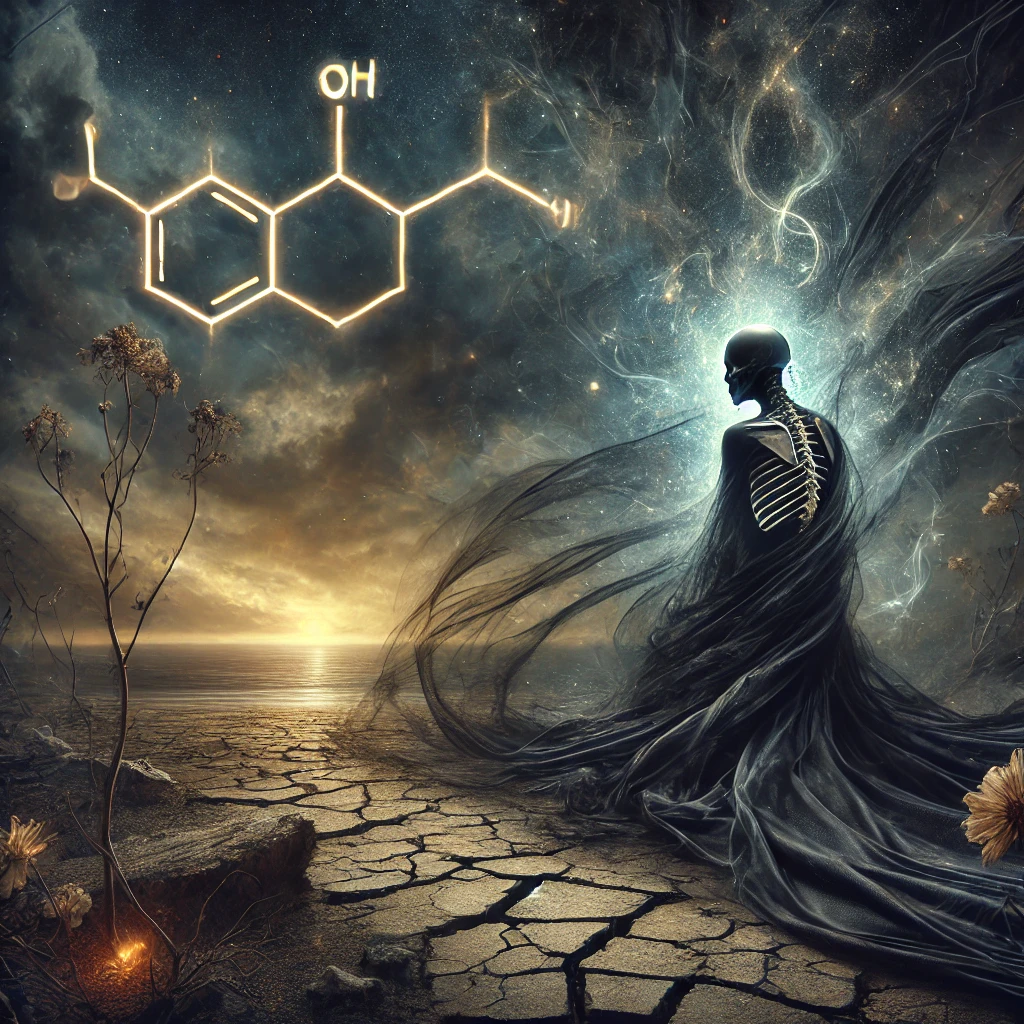Don black with drapes of vigor
Skeletons proceed with quease and quiver
When thy homunculus concede
And the dark yearns for me
Fed flesh, but greater still
Cannibalize a person’s will
Ail and ache—yet being
Never, never, for never conceding
Strike that spike of Dopamine
And upreg’ that Delta-Fos-B Gene
Rush rouses and espouses ascension
So bleak and transient transcension
Less sentience
At the cost of numbing reality
But meeker and bleaker than thy last
This high keeps going, going, until it pass
Regret thus drowns every thought
In a bath of distraught
And cognitive dissonance ensues
To rationalize what I lose
But the question remains
Does evil arbitrate evil done to thee?
Which engenders evil done by me?
By me, to me, such is my liberty
My liberty to forsake reality
Pain wields such yielding power
So palpable—its savor sour
But from which angle may I view
The ambivalence of it, askew
Chemical senses of adverse stimuli
Naturally selected to perpetuate “I”
To place in a state of woe and gloom
To churn the petals of a bud abloom
Pain exists to sense a fate
A fate to know before it’s late
A sign steering out a rutted road
A bode weighted by a taxing load
So be it may—ail and ache
Shake the time, soil the quake
By marking the dusk
And sensing the musk
Of a moment devoid of eyesight
“Blind” delves into the interplay between addiction, pain, and the nature of reality, blending scientific insights with philosophical reflection. Drawing on neuroscience, it references mechanisms like the Delta-Fos-B gene and dopamine signaling to illustrate the biological underpinnings of addiction and the cyclical pursuit of transient highs. The poem explores the psychological toll of these pursuits, highlighting cognitive dissonance and the internal struggle to rationalize self-destructive behaviors. Philosophically, it questions the role of pain as both an adaptive signal and a profound existential burden, challenging the reader to consider whether suffering serves as a guide to growth or a byproduct of human liberty. Ultimately, the poem reflects on the ambivalence of existence, the paradox of self-awareness, and the tension between sensory-driven reality and the desire to transcend it.

